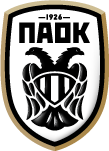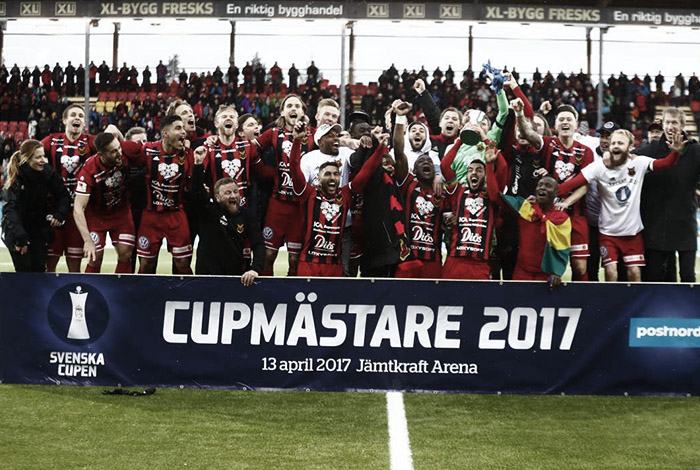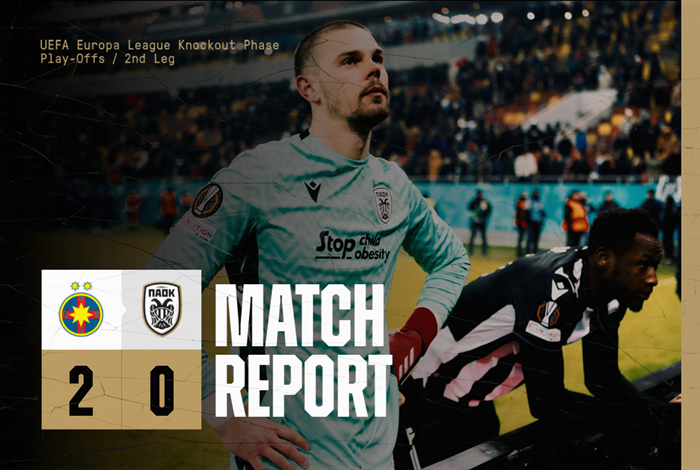Profile of Östersunds FK
Read the detailed profile of Östersunds FK, as prepared by paokfc.gr. The background, coach, roster and trajectory of PAOK’s rival in the UEFA Europa League play-offs.
History
They were founded in 1996 through the merger of three Östersund clubs, aiming to build a club that would establish themselves in the top two leagues of the country. Up until 2010, they were playing in the third tier and were relegated to the 4th in 2011.
The English element has always been strong in the club. In 2007, Östersunds FK started a cooperation with Swansea City to nourish young talents. And it was an Englishman who helped the team make a place for themselves among the big guns of Swedish football.
Graham Potter took the reins of the roster in 2010. His first two seasons led to as many promotions. In the fall of 2015, Östersunds FK celebrated getting promoted to the Allsvenskan league for the first time. In 2014, the club had announced a lucrative deal with the government of Libya to develop and educate young footballers.
After a dream maiden season in the top flight, Östersunds FK finished 8th while also winning the Swedish Cup (Svenska Cupen) by prevailing 4-1 over IFK Norrköping in the final. First ever major title and a ticket for a first ever participation in a European competition.
They have started strongly in the current season and find themselves in 5th place, with 27 points out of 17 games.
Fans, administration, coach and players are living their own fairytale and hope that they will welcome UEFA Europa League group stage action in the city of Östersund.
The coach
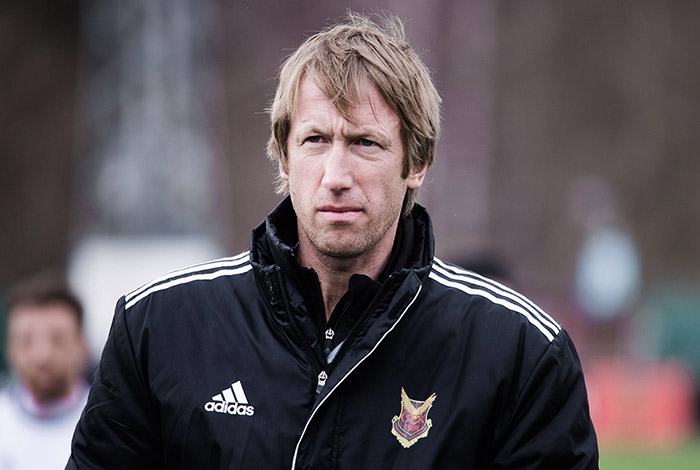
Graham Potter has undoubtedly been a key component of the team’s impressive rise and success. Boosting a career in the Premier League as player of Southampton FC, he retired from action in 2005.
After hanging up his boots and with support from the Professional Footballers’ Association, he graduated from the Open University with a degree in social sciences. He then worked in youth football development programs for the universities of Hull and Leeds. He completed a master’s degree in leadership and emotional intelligence.
In the winter of 2010, he penned a three-year deal with Östersunds FK, back then in fourth tier of Swedish football, and he managed to lead them to the top-flight league and to European football.
The methods he applied, in cooperation with club technical director Daniel Kindberg, are not very common in modern European football. In order to build a tight-knit group and forge strong relations between the players, the two men prep several cultural activities. Dancing, song, composing, even ballet shows are often included in the players’ daily activity helping the team to become a family.
The roster
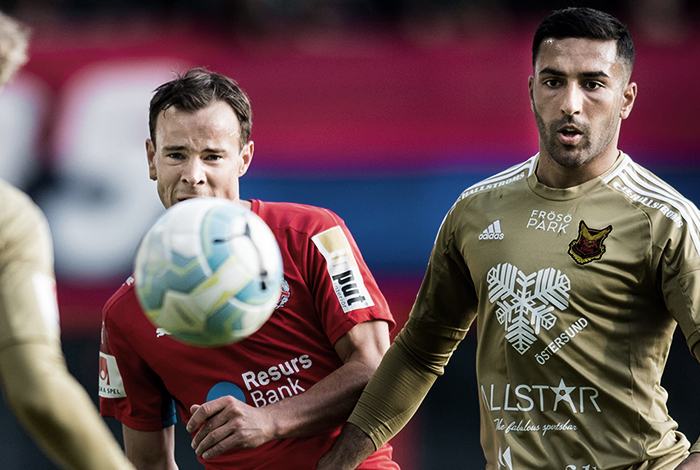
Östersunds FK´s main characteristic is homogeneity. During the summer window, no transfers were made, nor did any player leave the club –apart from the expiration of some loan deals.
Several players stand out in their roster: Nigerian goalkeeper Aly Keita, centre back Tom Pettersson, Iraqi midfielder and team captain Brwa Nouri, Fouad Bachirou from the Comoros, English midfielder Jamie Hopcutt, who leads the scoring charts this season with 5 goals, and striker Saman Ghoddos.
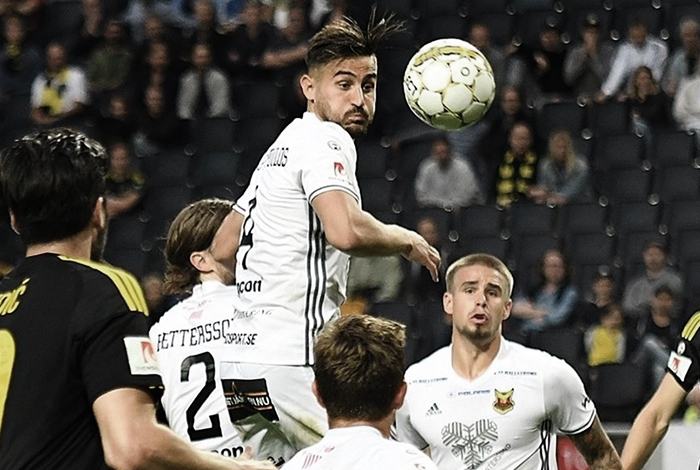
An old acquaintance is lining up some impressive performances lately. Sotiris Papagiannopoulos, a former player of PAOK, has become a vital cog in the Swedish side’s defence, often fielded in a role of old-school sweeper.
Their journey up to the UEFA Europa League play-offs
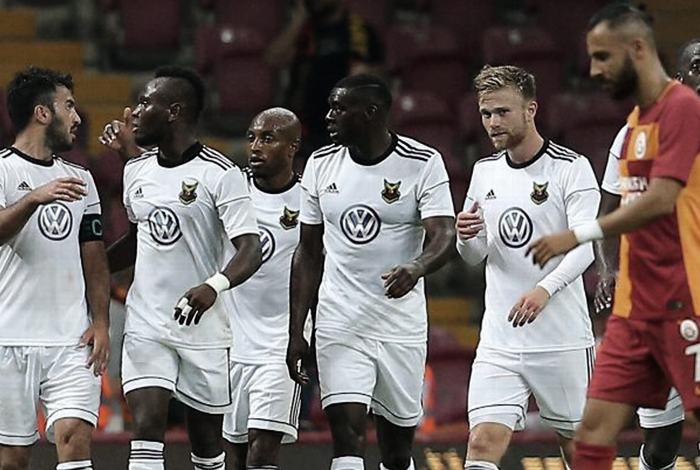
Winning the Swedish Cup provided Östersunds FK with a ticket for the UEFA Europa League 2nd qualifying round. They didn’t have a favourable draw, being paired with mighty Galatasaray SK, coached by Igor Tudor and featuring Garry Rodrigues. In theory, the Swedish outfit had slim chance of making it to the next round.
The first leg was held in Sweden and Östersunds FK proved a tough nut to crack. Deprived of any stress, they contained the attacks of Galatasaray in the first half and searched for a goal of their own after the interval. Ghoddos scored the opener in the 68th minute and Hopcutt made it 2-0 in stoppage time. They had a firm grip on the tie, but even then only a few thought that they would complete the job.
The complexion of the second leg in Istanbul was not very different. The Turkish side fired on all cylinders and kept looking for the goals that would allow them to turn the situation around, but the Swedes still managed to draw first blood. Nouri converted a spot kick and Östersunds FK sealed qualification. Tudor’s troops could only equalize in the 69th minute through Çalık.
They had a far more favourable draw in the 3rd qualifying round. After the feat of eliminating Galatasaray SK, the obstacle of modest Fola Esch from Luxembourg was considerably lower. Oozing self-confidence, they recorded two victories and secured a place in the UEFA Europa League play-offs.
In the first leg, held in Sweden, Bachirou scored the only goal of the encounter in the 51st minute. One week later, in Luxembourg, Fola Esch took the lead in the 53rd minute, but Somi and Pettersson turned the situation around.
